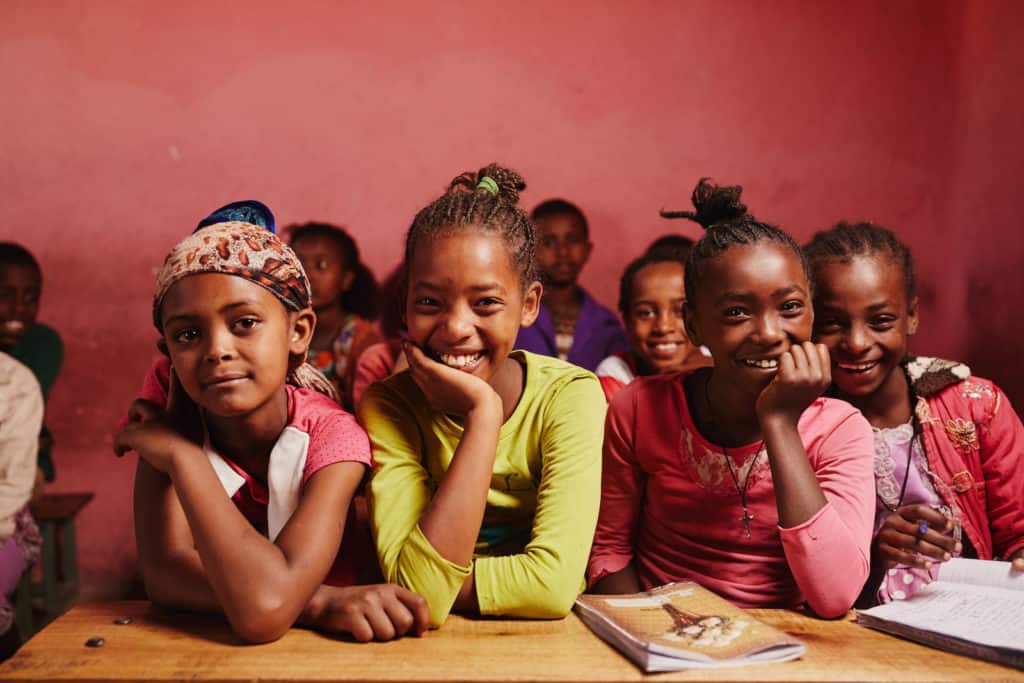This year’s Nobel Prize winners in economics are three professors pioneering the use of research in fighting poverty. Abhijit Banerjee, Esther Duflo and Michael Kremer have spent years carefully designing scientific experiments to determine which interventions help reduce poverty in particular circumstances, and which do not.
Thanks to their work, children in many countries are receiving preventive health care, one of the most effective poverty prevention measures in their context. And millions of children in India are receiving remedial tutoring.
Duflo, the youngest ever recipient of the prize at 46, reported to CNN,
“The essence of our research is to make sure that the fight against poverty is based on scientific evidence.”
How Research Drives Compassion International’s Programs
Using science as a weapon in the fight against poverty is a method Compassion International and our church partners have also been using for some 30 years. And it is becoming increasingly important as we move forward in serving more than two million children around the world.
“Duflo’s work has been a turning point in understanding evidence-informed programming,” says Dr. Alistair Sim, Compassion International’s Director of Program Effectiveness Research. “It brought to the mainstream the idea of doing experiments on social programs, which [was] largely restricted to medical testing of new drugs and therapies.”
High quality research is necessary to ensure our programs are making a difference and to determine how to structure them in the future. From 2008 to 2013, Compassion partnered with Bruce Wydick, of the University of San Francisco, on ground-breaking, peer-reviewed research that showed the impacts on adults who had been in our programs from 1980 to 1992. Wydick found that Compassion’s programs had large and statistically significant impacts on the educational, employment and leadership outcomes of children.
Moving Forward With Research in Poverty Alleviation
Research is leading Compassion to seek partnerships with churches in even more remote locations. Cheewit Amornfainuan is a director of a child development center in the hard-to-reach mountains of northern Thailand.
However, we know that we must continue to learn how the programs our church partners are delivering today are impacting children so that we can become more efficient and cost-effective in our poverty-alleviation efforts. And ultimately so that we can bring the most relevant help to children living in poverty.
Further studies of our own have helped us to understand the impact of other interventions. For example, we found that our water initiatives had impressive long-term sustainability rates, whereas our income-generating activities needed better local contextualization to make a significant impact.
Research has helped us learn more about the sustainability of our water initiatives.
Some of our own team’s recent research is helping us learn in what contexts our interventions are most effective. Thanks to this research, we will be focusing on expanding our ministry with churches in areas with some of the highest poverty indexes in the world — where our programs will make the most difference.
Currently, Compassion is also engaging in a first-of-its-kind six-year longitudinal study of positive youth development. In partnership with Tufts University, Boston College and Fuller Seminary, this study will help us better predict the outcomes various interventions will produce in the lives of youth, by comparing Compassion-assisted youth with a group of youth who weren’t assisted. The results thus far have been published in the UNICEF-sponsored Handbook of Adolescent Development Research and Its Impact on Global Policy. This research is helping Compassion, and the sector at large, better understand how youth develop life and leadership skills.
Good Data Is Our Friend
Research and data might seem dry and disconnected from the realities of children living in poverty. But Sim encourages supporters to embrace data. It helps us ensure that our programs are the best they can possibly be.
As a Compassion sponsor, you can know that there is a small army of scientists behind the scenes studying the impact of your help so that we can help children be empowered to escape poverty in increasingly effective ways.
“People can feel confident that we at Compassion are doing the best we can,” says Sim, “and in some ways leading the way, to bring the best and most relevant evidence we can to fight poverty.”

